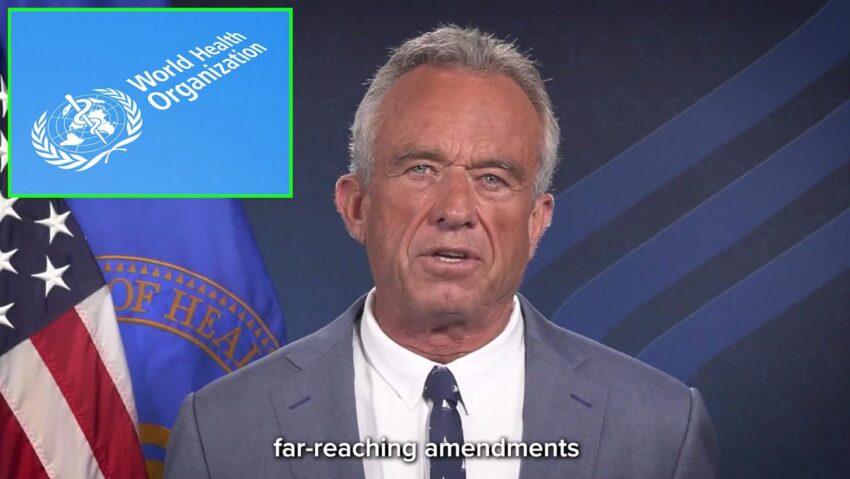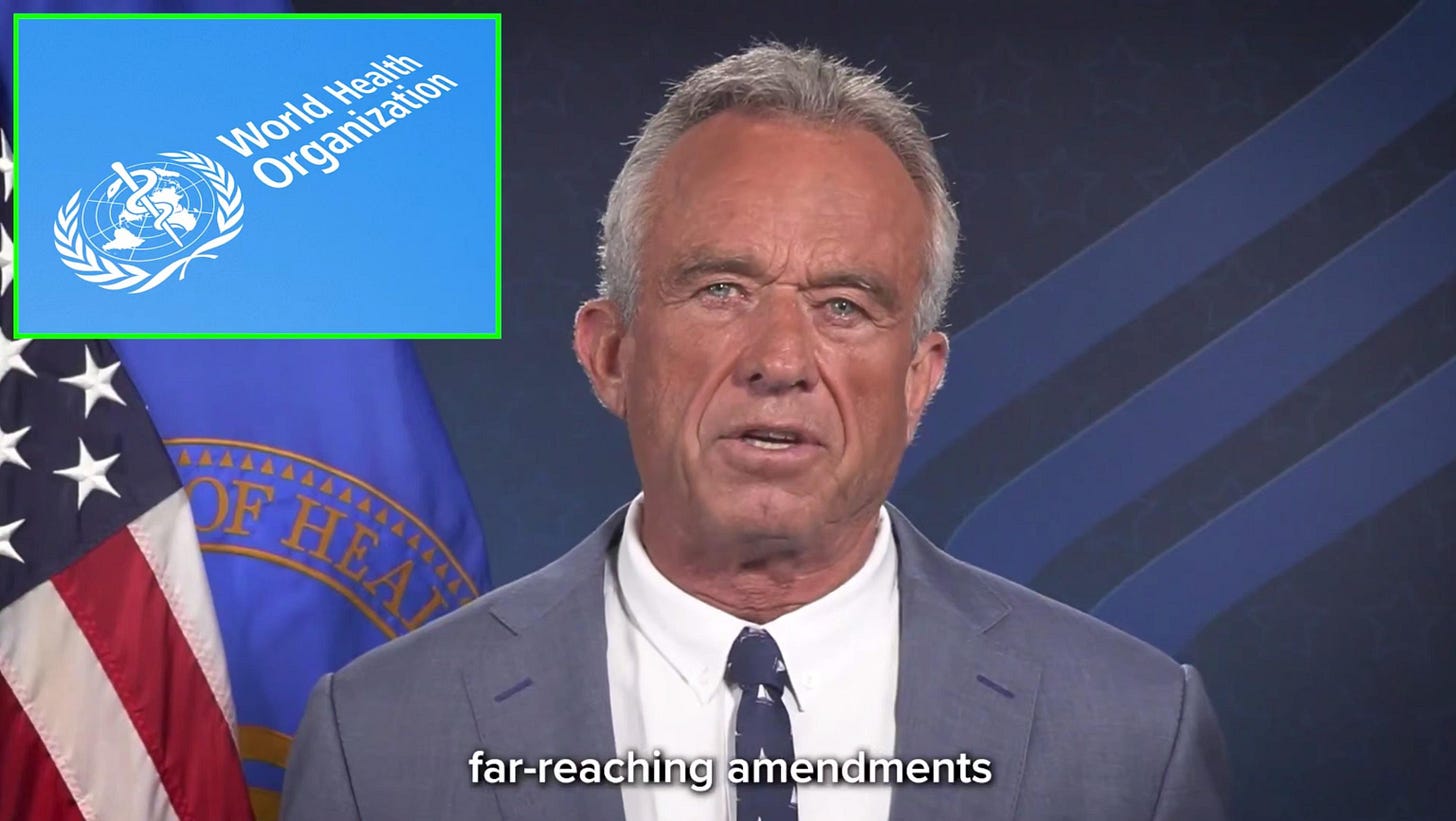America is done bowing to globalist health tyranny. RFK Jr. just sent a clear message to the World Health Organization, flat-out rejecting the IHR. No more handing over U.S. sovereignty to unelected bureaucrats.
Standing at a podium in front of an American flag, Secretary Robert F. Kennedy Jr. looked straight into the camera and said what no other official has dared to say: “We are rejecting the World Health Organization’s amendments to the International Health Regulations. And I want to explain why.”
With that, the United States made it clear: we’re walking away from a treaty that would have handed sweeping authority to an unelected global body, letting them dictate pandemic response policies from lockdowns to travel bans to medical mandates.
“These regulations establish the legal framework that gives countries rights and responsibilities for managing public health events with global impact,” Kennedy explained.
“And we’re not handing those rights over to the WHO.” The message couldn’t have been more direct: health emergencies in the United States will be handled by Americans, not bureaucrats in Geneva.
Then Kennedy laid out exactly what’s at stake. “The first reason is national sovereignty,” he said. “Nations who accept these new regulations are signing over their power in health emergencies to an unelected international organization.” He didn’t hold back.
“They could order lockdowns, travel restrictions—whatever measures they see fit.” And it doesn’t stop there. “In fact,” Kennedy warned, “it doesn’t even need to declare an emergency. ‘Potential public health risks’ are enough for it to initiate action.” No vote, no debate, just sweeping powers based on what might happen.
“If we’re going to give the WHO that much power,” he said, “we need a real public debate. Because if this is a treaty, the U.S. Senate needs to vote on it. That’s how our system works.”
However, instead of causing public debate, Kennedy pointed out that the Biden administration tried to slip the deal through quietly. That plan didn’t survive the day. Trump and Kennedy blew it wide open.
Still, Kennedy said the real danger isn’t just about who controls movement—it’s about who controls the message. “The new regulations require countries to establish systems of ‘risk communications’ so the WHO can implement unified public messaging globally.”
That’s not cooperation. That’s control. “That opens the door,” he warned, “to the kind of narrative management and propaganda we saw during the COVID pandemic.”
He didn’t have to explain what that looked like—everyone remembers. Dissenting doctors silenced. Reasonable questions labeled as misinformation. People suspended online just for asking about vaccine risks.
And it goes even deeper. “The agreement also contains provisions about global health IDs, vaccine passports, and a centralized medical database,” Kennedy said.
“It lays the groundwork for global medical surveillance of every human being.” He wasn’t speculating. These ideas are written into the WHO’s own documents.
Kennedy ended his remarks with a warning and a reminder.
“I don’t want to sound alarmist,” he said. “The new regulations aren’t medical totalitarianism by themselves. But they are a step in the wrong direction.” And once that first step is taken, the next ones tend to come fast. “That’s why we’re rejecting the amendments,” he said.
“Not just on behalf of our citizens, but for the entire world.” Most nations don’t have the same leverage the U.S. does. “Even if the amendments are written to be non-binding, in practice it’s hard for many nations to resist… especially when they rely on WHO funding and partnerships.”
Kennedy made it clear this wasn’t about isolationism. “We are not rejecting international cooperation,” he said.
“We can work with other countries without giving up our civil liberties, without undermining our Constitution, and without surrendering our national sovereignty.”
A few moments later, Secretary Marco Rubio shared the news. “Today the U.S. rejected the 2024 amendments to the International Health Regulations, delivering on the Trump Administration’s promise to fight for Americans in the international system,” he wrote on X.
“State Department and HHS are working together to ensure our national sovereign right to make health policy is dictated by the values and will of the American people and not by unelected global actors.”
Secretary Robert F. Kennedy Jr. may be the most consequential appointment of the Trump presidency. Today showed exactly why.
The US signaled a firm stand for national sovereignty by rejecting the WHO’s power grab. Let this day be remembered as a defining moment for RFK Jr. and a bold call by the Trump administration.
If you appreciate my work and want to help keep it going, consider becoming a paid subscriber.
This story was also made possible with the help of Overton —I couldn’t have done it without him.
If you’d also like to support his growing network, consider subscribing for the month or the year. Your support helps him expand his team and cover more stories like this one.
We both truly appreciate your support!
Click this link for the original source of this article.
Author: Overton
This content is courtesy of, and owned and copyrighted by, https://vigilantfox.substack.com and its author. This content is made available by use of the public RSS feed offered by the host site and is used for educational purposes only. If you are the author or represent the host site and would like this content removed now and in the future, please contact USSANews.com using the email address in the Contact page found in the website menu.











